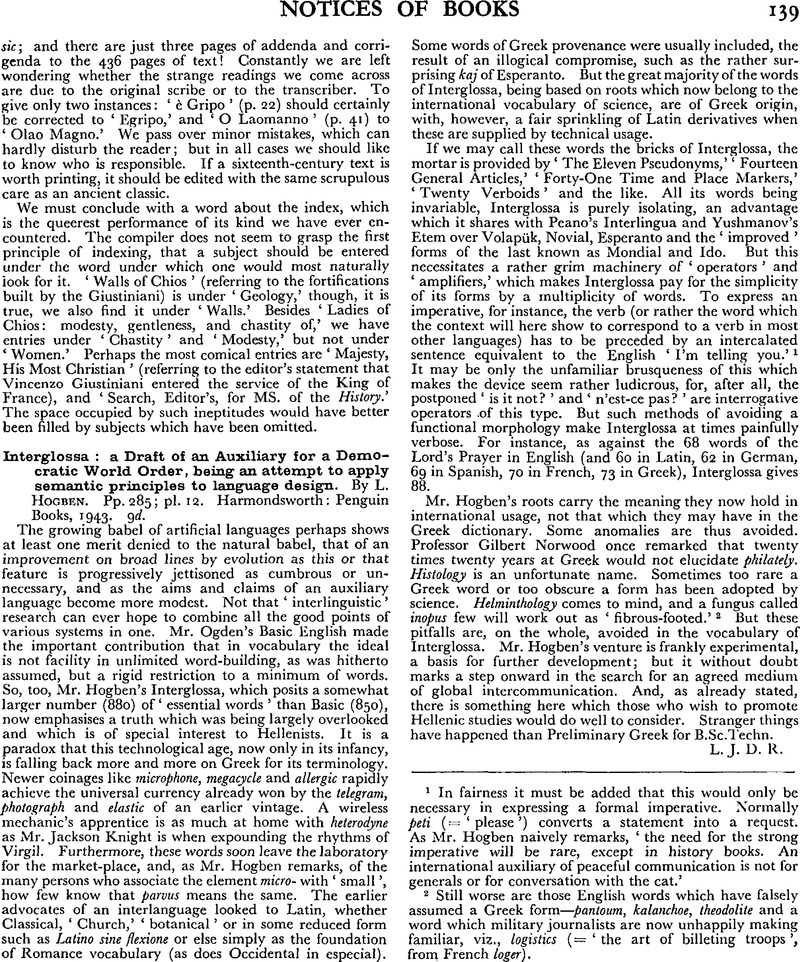No CrossRef data available.
Article contents
Interglossa: a Draft of an Auxiliary for a Democratic World Order, being an attempt to apply semantic principles to language design. By L. Hogben. Pp. 285; pl. 12. Harmondsworth: Penguin Books, 1943. 9d.
Published online by Cambridge University Press: 23 December 2013
Abstract

- Type
- Notices of Books
- Information
- Copyright
- Copyright © The Society for the Promotion of Hellenic Studies 1943
References
1 In fairness it must be added that this would only be necessary in expressing a formal imperative. Normally peti ( = ‘please’) converts a statement into a request. As Mr. Hogben naively remarks, ‘the need for the strong imperative will be rare, except in history books. An international auxiliary of peaceful communication is not for generals or for conversation with the cat.’
2 Still worse are those English words which have falsely assumed a Greek form—pantoum, kalanchoe, theodolite and a word which military journalists are now unhappily making familiar, viz., logistics (= ‘the art of billeting troops’, from French loger).


